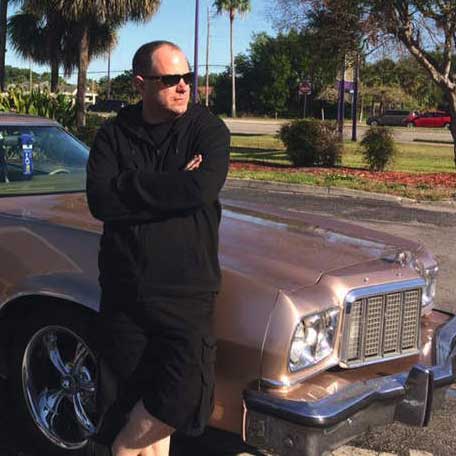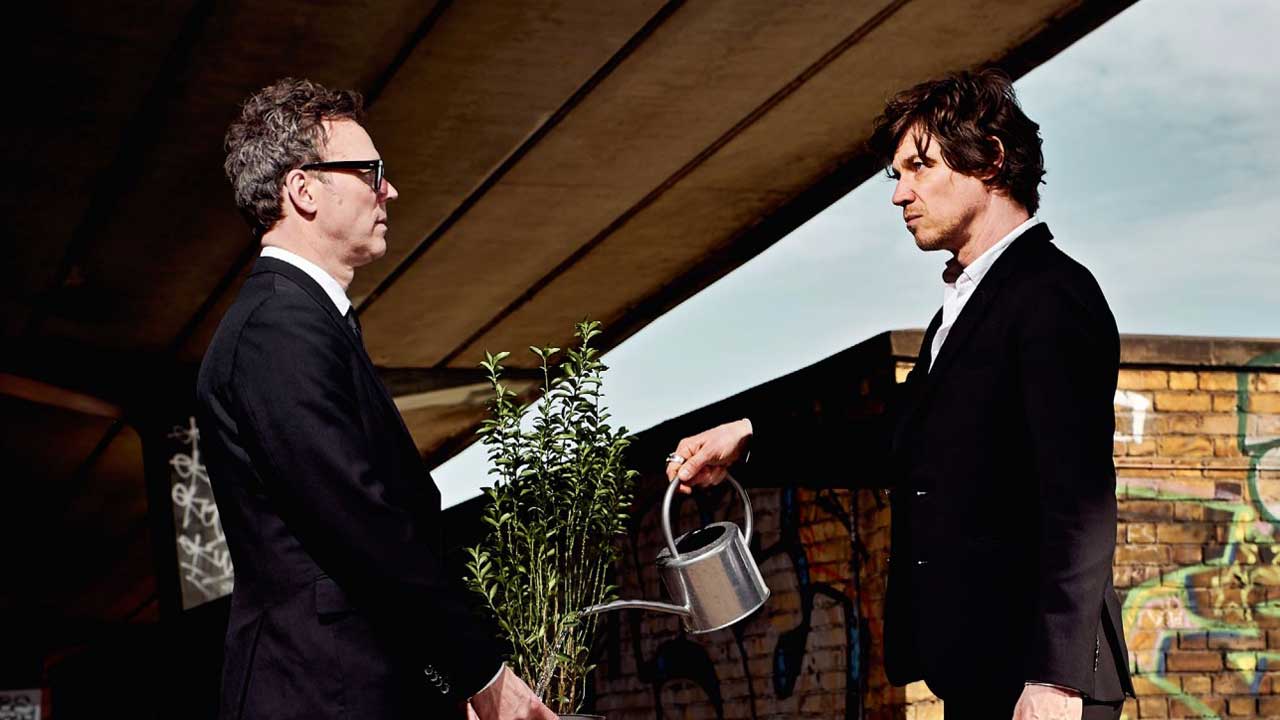The 10 greatest ska-punk albums ever, ranked from worst to best
Pick it up! Pick it up! No, really, pick up any of these ska-punk stormers and you're in for a treat
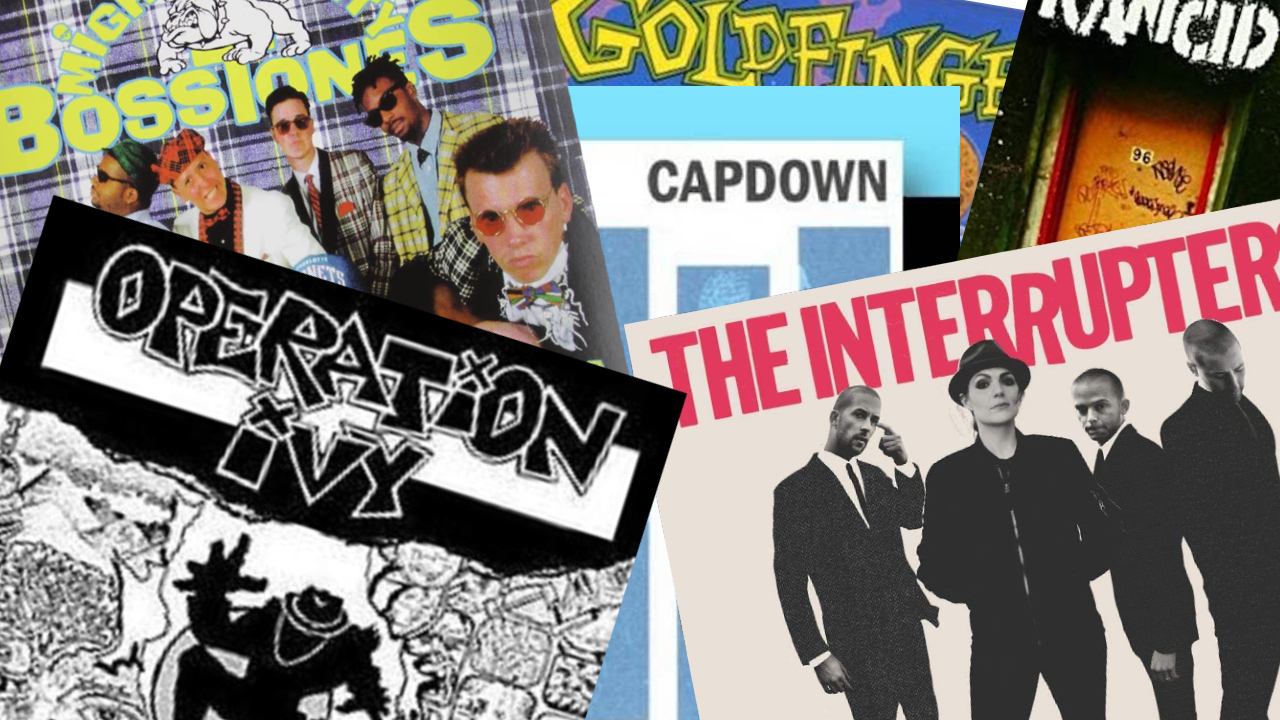
Ska punk: it's the Marmite genre that just won’t die. Whatever your opinion though, the infectious combination of ska and punk is probably as responsible for recruiting successive generations to punk rock as the more mainstream commercial acts, from the Sex Pistols to Green Day.
Danceable, upbeat and generally positive in lyrical themes and outlook, ska punk was established in the original '70s punk rock explosion with The Clash and Ruts. The subsequent ska revival fronted by the 2-Tone movement and associated ska revival of the late 70s/early 80s – including The Specials, The Beat, Madness, The Selecter, Bad Manners and The Bodysnatchers – would prove to be as influential on the genre as punk itself. Its progressive politics and diversity coupled with the economical but confrontational style of punk meant the genre would go on experience multiple revivals throughout the following five decades.
And here are the 10 finest albums ever to represent the genre.

10. Voodoo Glow Skulls – Firme (1995)
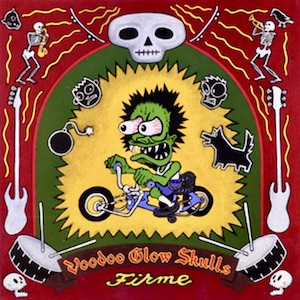
Almost 35 years as a going concern, Voodoo Glow Skulls are geared at the chunky riff-heavy end of ska punk and were originally influenced by Fishbone and Red Hot Chili Peppers, as well as their hardcore punk peers.
On Firme, their debut for Epitaph, and second album overall, the seven-piece’s furious but wacky brand of ska punk set them apart from the mid '90s SoCal pop-punk explosion, and paid tribute to their Hispanic roots by being issued in both English and Spanish language versions.
9. Goldfinger – Goldfinger (1996)
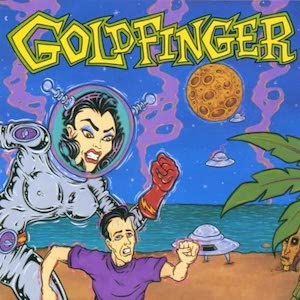
Taking cues from '70s British punk as well as Operation Ivy and Rancid, Goldfinger would eventually abandon the ska influence but their debut album’s musicianship elevated them above late '90s bands like Reel Big Fish, Save Ferris, Mad Caddies and similar landfill ska punkers who had beat the genre into submission by the millennium.
Here In Your Bedroom is reminiscent of classic UK ska like The Beat while the supremely daft and sappy but enjoyably melodic Mable showcases the band’s ska-pop-punk teen angst to a tee.
Buy Goldfinger
8. Capdown – Civil Disobedients (2000)
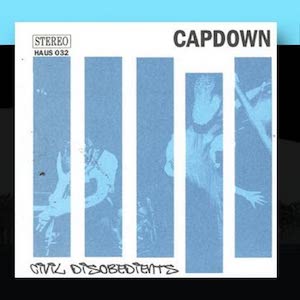
The UK’s revitalised ska punk scene took off in 2000, most notably with albums from Milton Keynes’ Capdown, London’s King Prawn and Tewkesbury’s Spunge.
At the grittier hardcore end of ska punk, with influences from Snuff to Citizen Fish and boating an occasional horn section, Capdown’s reputation as an incredibly tight musical unit earned from relentless gigging put them on a par with their more popular American counterparts.
Their popular debut featuring signature tune Ska Wars and their assimilation of dub and turntablism in the pounding Dub #1 and Bitches and Nike Shoes respectively.
The latest news, features and interviews direct to your inbox, from the global home of alternative music.
7. The Interrupters – Fight The Good Fight (2018)
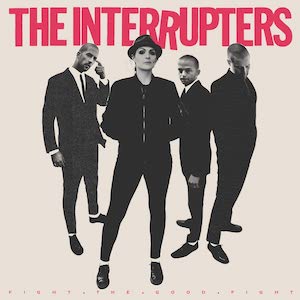
Keeping the ska punk dream alive into the 2020s, session musicians/studio engineers the Bivona brothers and singer-songwriter Aimee Allen coalesced as LA’s The Interrupters in 2011 while taking part in Tim Armstrong’s Tim Timebomb side project.
The quartet's third album, with its 2-Tone, Joan Jett and The Distillers influences in the upbeat and lively So Wrong and She’s Kerosene prove that there’s life in the old genre yet. Mentor Tim A. and the rest of Rancid pop up on the collaboration Got Each Other.
6. Less Than Jake – Losing Streak (1996)
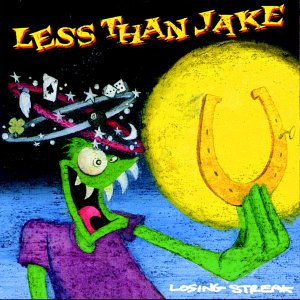
By the time that ska punk broke in the US, Florida’s Less Than Jake already had four years of trading – launched by their supremely annoying debut Pezcore – under their belts. And the musicianship and confidence displayed on their major label debut Losing Streak would place them alongside Mighty Mighty Bosstones in terms of popularity, thanks to the heavy rotation of opener Automatic on MTV.
The group's follow-up record Hello Rockview was a more commercially successful and polished affair, but the infectious grooves of Losing Streak’s horn-laden Shindo and Johnny Quest Thinks We’re Sellouts saw Less Than Jake on the edge of greatness.
5. Citizen Fish – Flinch (1993)
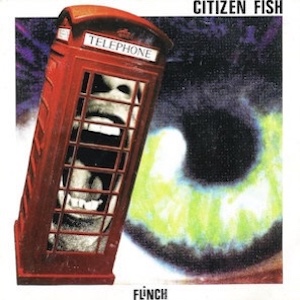
While their previous band was a direct reaction to the overwhelmingly negative outlook of anarcho punk, ex-Culture Shock vocalist Dick Lucas and bassist Jasper Pattinson, along with guitarist Phil Bryant (replacing Larry on the debut) and returning Subhumans drummer Trotsky reinvented the ska punk genre.
Their 1990 debut Free Souls in a Trapped Environment saw Citizen Fish redress the balance between the Subhumans’ bleak but powerful anarcho punk and the comparatively positive Culture Shock. Third album Flinch is classic Fish, featuring socially conscious lyrics that sidestep dogma (TV Dinner, Social Insecurity) and offer a positive critique of the punk scene itself (Dividing Lines).
4. Rancid – Life Won’t Wait (1998)
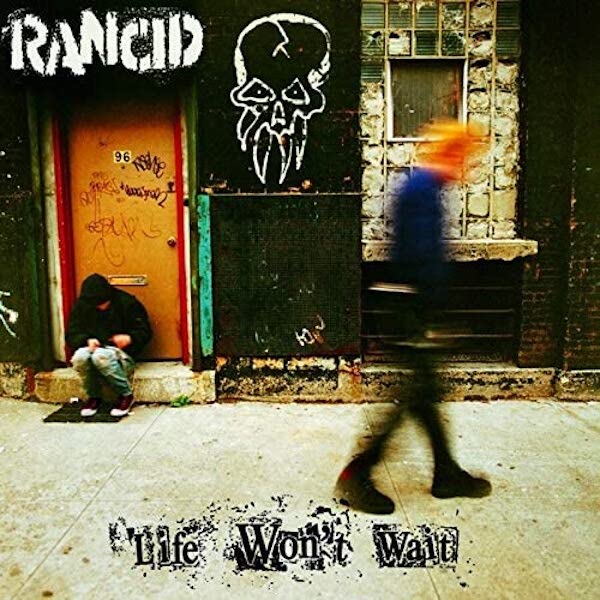
By the time Tim Armstrong and Matt Freeman resurfaced with Rancid following the Operation Ivy split, it looked as if they’d all but left ska punk behind with the raw urgency of their hardcore 1993 self-titled debut.
But by the time of their crowning glory, 1995’s …And Out Come The Wolves, it had crept back in. Well, for three tracks at least: Time Bomb, Daly City Train, Old Friend. But if their best known album isn’t strictly ska punk – and neither are Rancid – Life Won’t Wait is closer to the mark, featuring a brass ensemble and a comprehensive return to their heartland sound, not least Freeman’s jaw-dropping dexterity on the bass. Oh, and the songs - Who Would've Thought, New Dress, Lady Liberty, The Wolf and Turntable to name just a handful - are contenders for any Rancid 'best of' compilation.
Buy Life Won't Wait
3. Culture Shock – Onwards & Upwards (1988)
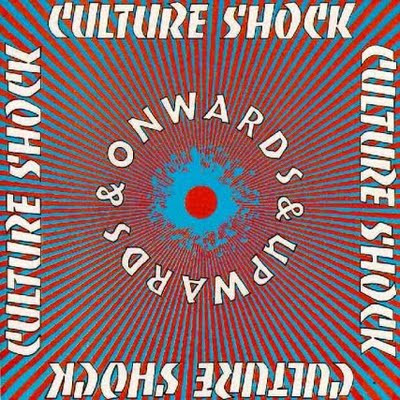
Following the original split of the Subhumans in 1985, Dick Lucas returned with Culture Shock, whose sound couldn’t have been further from the nightmarish anarcho punk his former band delivered on The Day The Country Died and Cradle to The Grave.
Influential debut album Go Wild , with its infectious grooves, mirrored the socio-political themes of the Subhumans but with positivity, fun and laughs previously in short supply. But it was on album two, Onwards & Upwards, where they really struck gold.
Noted for his insightful and poetic portrayal of the human condition, Lucas delivered one of his single greatest lyrical achievements with album closer I.S.D., an appropriately inspirational climax to one of the most uplifting ska punk albums created. Highlights include the blunt If You Don’t Like It to the devastating pitch-perfect critique of Little Englander hypocrisy in Civilization Street.
Buy Onwards & Upwards
2. The Mighty Mighty Bosstones – More Noise & Other Disturbances (1992)
In terms of skilled musicianship and songwriting prowess, few ska punk bands could touch The Mighty Mighty Bosstones, specifically the compositional talent of core members vocalist Dicky Barratt, Joe Gittleman the bass fiddleman, guitarist Nate Albert and trombonist Dennis Brockenborough, the latter heading up the greatest horn section that ska punk has seen.
Barrett’s gravelly Lemmy-style growl and the accomplished musical arrangements were informed by a desire to break beyond the formatting of their hometown's celebrated hardcore scene. And this front-loaded album, with its knockout opening salvo of Awfully Quiet, Where’d You Go, Dr D, and It Can’t Hurt, put the Bosstones firmly on the map long before Where’d You Go appeared in 1995 movie Clueless, and before the Boston crew scored a number one placing on Billboard's Modern Rock Tracks with The Impression that I Get from 1997’s platinum-selling Let’s Face It.
Buy More Noise & Other Disturbances
1. Operation Ivy – Energy (1989)
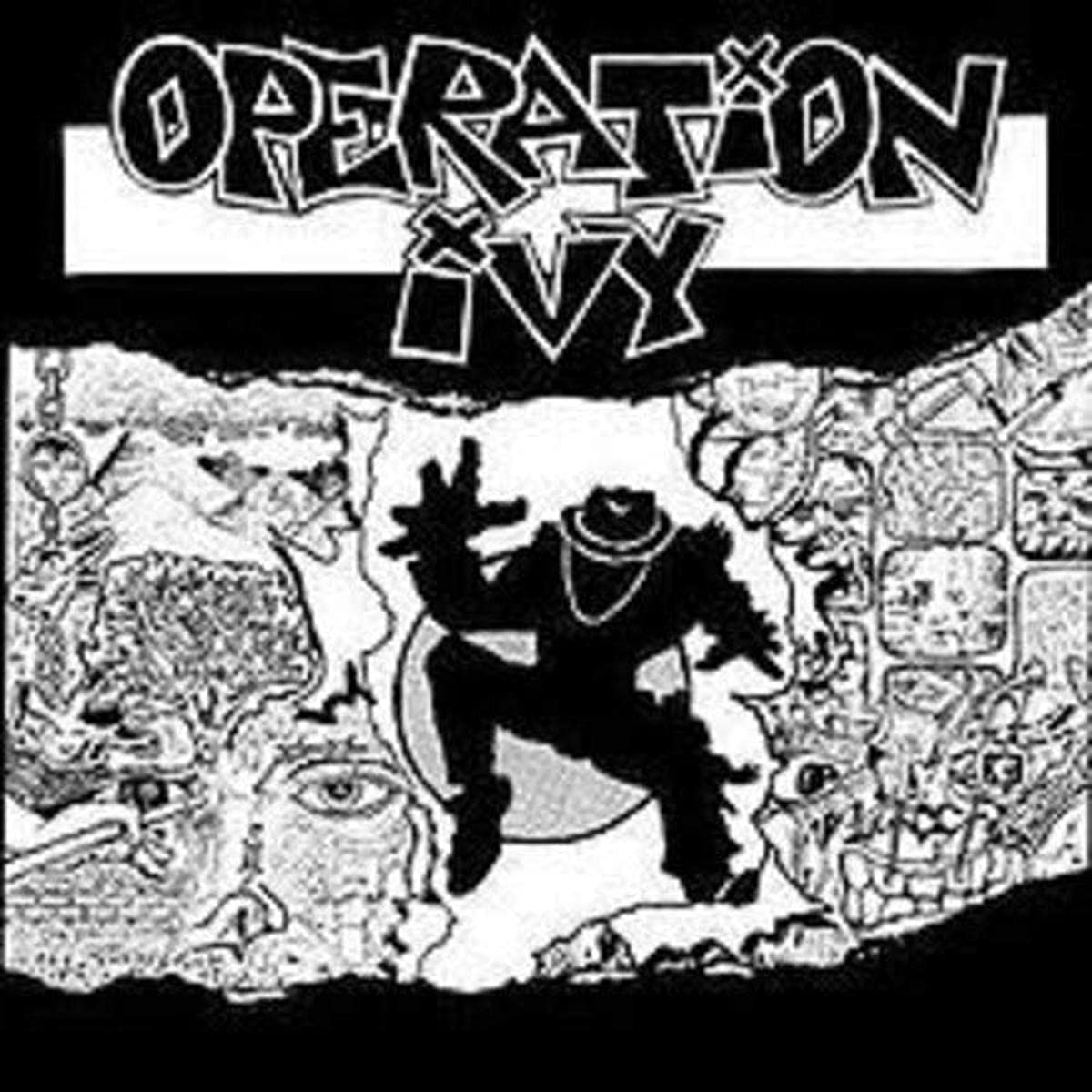
Filtering their love of 70s punk through the 2-Tone movement, UK pals Culture Shock, and 80s hardcore, Operation Ivy’s two-year existence was brief, but the urgent and chaotic yet uplifting Energy established a ska punk template for decades to come.
The band - vocalist Jesse Michaels, guitarist Tim ‘Lint’ Armstrong, bass prodigy Matt ‘McCall’ Freeman and drummer Dave Mello - were part of the incredibly fertile and influential punk scene of late '80s Berkeley, California, based around the live venue 924 Gilman, and documented in local-yet-global zine Maximum RockNRoll, with its key singles and albums released on Lookout Records (also home to Green Day, Crimpshrine, Fifteen, Mr T. Experience, Samiam, and more). This fecund San Francisco area scene developed in tandem with the parallel scene in Los Angeles, centred around Epitaph Records, where Bad Religion, The Offspring, and NOFX would help catalyse the wider Californian post-grunge explosion of the early '90s.
Armstrong and Freeman would go on to form Rancid two years after Energy’s release, with the album emerging at the same time Operation Ivy split, despite being offered a major label deal with EMI. From the frantic ska of Sound System and Bombshell to the rap of Bad Town and call-and-response of Caution (both illustrating a hip-hop/punk fusion eventually expanded upon with Armstrong’s side project The Transplants), Energy features a wider diversity of styles than is initially apparent.
The promise of Armstrong’s embryonic musicianship potential is further hinted at in Knowledge (still a regular feature of Green Day setlists) and Artificial Life, while Michaels’ lyrics shine in the think-globally-act-locally political themes of Unity and Freeze Up.
They may be remembered as cult heroes, but Operation Ivy’s legacy was written in stone well before Rancid, Green Day and The Offspring made their millions. And the rudimentary yet urgent appeal of Energy is an influence not just on the immediate flood of ska punk outfits that would follow throughout the '90s, but one which still endures in the 2020s.
Buy Energy
- RELATED READING: 10 amazing ska punk songs you've probably forgotten about
A regular contributor to Louder/Classic Rock and The Quietus, Burrows began his career in 1979 with a joke published in Whizzer & Chips. In the early 1990s he self-published a punk/comics zine, then later worked for Cycling Plus, Redline, MXUK, MP3, Computer Music, Metal Hammer and Classic Rock magazines. He co-wrote Anarchy In the UK: The Stories Behind the Anthems of Punk with the late, great Steven Wells and adapted gothic era literature into graphic novels. He also had a joke published in Viz. He currently works in creative solutions, lives in rural Oxfordshire and plays the drums badly.
